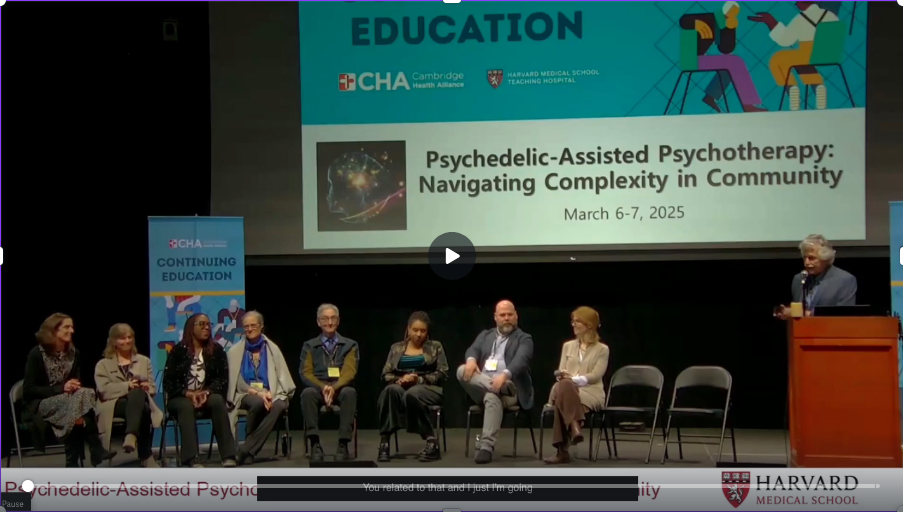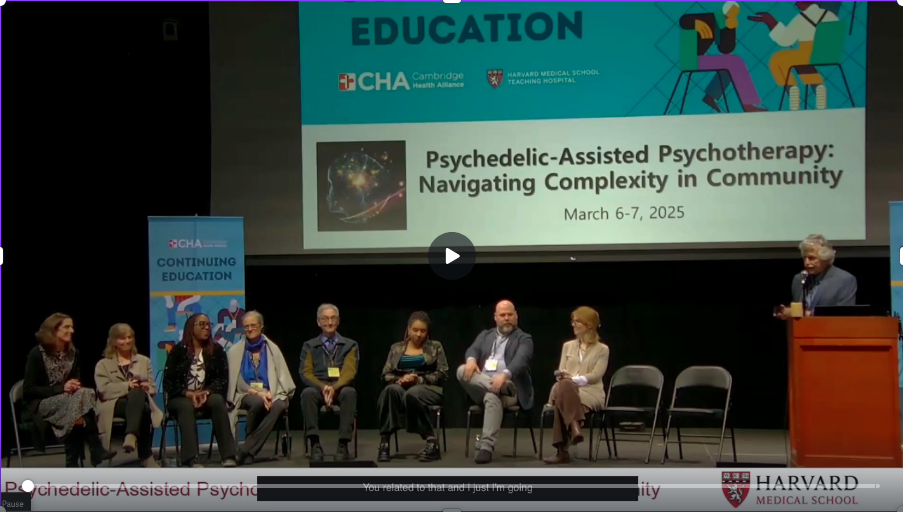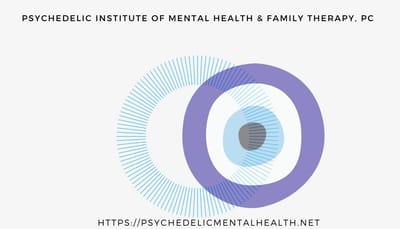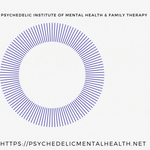Ketamine - "psychedelic" or "dissociative"? Experts weigh in


Closed caption (no audio) from a recent Harvard Medical School training on psychedelic medicines. Read what this panel has to say on the problematic categorization of ketamine as a "dissociative anesthetic".
Ronald D. Siegel, PsyD: When we talk about the dissociative aspect of ketamine, what are we dissociated from? What is the sense of conventional self, if you will, that is being dissolved or softened or that is what's what's happening there and I'm curious to hear perhaps several people's reflections on this because there's an assumption when we talk about dissociation that there's something called a stable or known sense of self that certainly in the dissociation that comes from trauma that is being, we're removing ourselves from experience in some way. And yet something else is happening with the dissociation with ketamine in which we're coming closer often to the contents that have been pushed out of awareness, but our sense of who it is is changing in some way. And I wonder if anybody would like to address that.
Monnica Williams, PhD: I guess I would say that I think that calling the effects of ketamine dissociative is is more really of a misnomer. I don't, I personally don't see much of a similarity at all between the experience of being dissociated as you know as a result of, you know, fear stress or trauma and what you experience with ketamine. I kind of feel like this was perhaps some intentionally misleading language that's been used to describe ketamine because it has been so useful in a medical context and people didn't want to associate it with a stigmatized psychedelics. So I think it's a misleading term,
maybe not necessarily for a bad reason, but I would never say that it causes
dissociation.
Ronald D. Siegel, PsyD: My understanding is ...that's what made them come up with the term dissociative anesthetic and then we've kind of adopted it in we've kind of held on to that but to your point Maybe it doesn't apply to the work we're doing.
Joanna Duda, NP: I think it does depend on dose.. When I spoke with a client ... she said, "I got distance because the ketamine gave me distance– gave me distance from the noise, from the parts, from my emotions, from my memories." So she called it distance. I think we're just using a word, ketamine, as a dissociative because that's what's written about. But I think if we really nuance it a bit more, it just provides distance.
It's what psychedelics do. They take us away from the reality,
it's non -ordinary reality, it's a distance from life. Some people, that's really
helpful... that's where integration comes in. You gain perspective with
your integration. You've got a distance to see all this, but then it's afterwards to
put the meaning to it and integrate and have deeper understanding about oneself and whatever emerged in the session.
I would add that when I'm working with ketamine clients, I use the
word "spacious" and granted that's connected to my practice,
but it gives that sense, which clients have often reported back to me,
not necessarily because I use that word, but oftentimes with ketamine people are
traveling through space in their experience, and they are getting space from and
within the experience of their, their challenges and, and so distance perspective,
all of that. Spaciousness.
Anad Thomas, CRNA: Just as an anesthesia provider, it is a misnomer in my experience. Before I had my training and had this experience with ketamine, I used to describe it to people as, that's you over there, as if there's some uncoupling,
'cause that's how we're trained to talk about it. You're going to be experiencing
this thing, but it's not going to be the you that it usually is attached to. And
that's not what people experience at all. It's definitely an uncoupling of this
owning or wrestling with. There's that space that happens, and I think dissociation is just as appropriate for psilocybin, where you're disembodied and you're in a non -dual space. Is every non -dual psychedelic now a disassociative? Don't think so. But I do think ketamine gets, as Elise mentioned, a softening of the tightness of holding on to your experience, your suffering, even pain. And we also know that it has some opioid So that, that the way that I think it was a convenience, a historical convenience to call it a dissociative. But I don't think it really reflects what people are experiencing.
Monnica Williams, PhD: Yeah, and there's a certain lack of identification with narratives. Yeah, as you're talking about. I would like to add also that, you know, as a clinician, when you're working with somebody who's been traumatized, you'll see they're very fused with their trauma in a lot of ways. And one of the goals of therapy is to help them diffuse from their trauma so that they can have a healthy perspective on it. So yes, it's part of them, but it doesn't define them. And they're not in the moment constantly affected by it. And so if you think about any type of treatment for trauma, you want them to have distance from their trauma to a healthy extent, in the same way as you would and other psychedelics also can bring this about. For example, MDMA, which you know, we used to treat PTSD. And you'll often hear patients say, you know, before I felt, you know, very much like I was drowning in my trauma. And now I can look at it and say, hey, that's just a bad thing that happened to me because I was in the wrong place at the wrong time. And it has nothing to do with who I am. And that's ultimately what we want. And so, and the same with the work with the ketamine.
Anne Vallely: just from the religious studies perspective, that language of detachment is something that you see throughout the mystical literature, right? And also in the meditation literature, mindfulness is detached from the not the authentic self.And so it's a it's a slow process, but become a witness to these things that are that are not serving you or that in your life, but that are not authentically used. So that language of detachment is just everywhere, again, in the mystical literature. And in the quote that I shared of Rachel Plutterson, she also talked about depression being there, but it's occupying a smaller place, right? And it looked like getting perspective or some kind of detachment.

